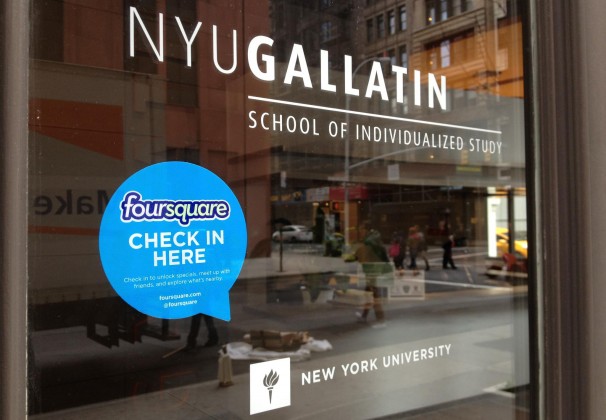
The Gallatin School of Individualized Study will be awarding $25,000 Dean’s Graduate Scholarships to four incoming master’s students studying humanities and the arts; the history of science, environment, sustainability; globalization and developments and politics and human rights.
Susanne Wofford, dean of Gallatin, said the Gallatin Dean’s Graduate Scholarships resemble the NYU Reynolds Program, a program sponsored by the Wagner School that supported social entrepreneurship with grants and fellowships.
“Our students were very engaged with applying for the Reynolds and we often got several scholarships from that, ” Wofford said. “We decided that we should use some of our funding to create something, it’s not as extensive as the Reynolds, but it has the benefits.”
The four categories were chosen based on the Gallatin’s faculty strengths, as well as the interests of Gallatin masters students.
“These are areas that we see as important areas to the faculty as well as where we have a lot to contribute,” Wofford said.
The scholarships are being funded by philanthropy and the existing annual financial aid budget, meaning donors will determine whether this program survives or not.
“Right now we have been able, thanks to the support of donors, to raise some funding that has been identified for graduate students,” Wofford said. “I know we are covering it for the next two or three years, but if five years from now we can’t afford it, we may have to stop.”
Amy Spellacy, administrative director of Gallatin’s master’s program, hopes that the scholarships will attract strong students and support them.
“We recognize that there is a need to provide funding for M.A. students and we are interested in offering substantial scholarships to our most competitive applicants,” Spellacy said.
The recipients of the scholarships, who will be chosen by a faculty committee that will review applications, need to know what they want to do and why they want to do it, according to Wofford.
“Unlike undergraduates, what we stress for high school students coming in as freshmen, that it’s an area where you could be still exploring your interest and we expect you to build your concentration over time,” Wofford said. “This is a program where they’re only here for two years, they have to have a good idea of what they want to do.”
Funding for master’s students is a rare thing among both private and state universities. Usually, M.A. programs are combined with doctoral programs and the funding comes from those students teaching during their studies, Wofford said.
“A real, separate, stand-alone M.A. program with funding is really rare. We’re really proud of our M.A. program, we feel that we have super students and we think that providing some funding will continue to strengthen the program,” Wofford said.
Gallatin senior Elena Bakker said she is considering applying to the graduate school and that the scholarships were appealing, especially because of its renewability for a third semester.
“Gallatin is a community of people who all think a bit different, which is an amazing thing,” Bakker said. “If these scholarships can help other people live the Gallatin experience and responsibilities it teaches you, I see that as a great thing.”
A version of this article appeared in the Wednesday, Oct. 23 print edition. Klein Aleardi is a staff writer. Email her at [email protected].






















































































































































